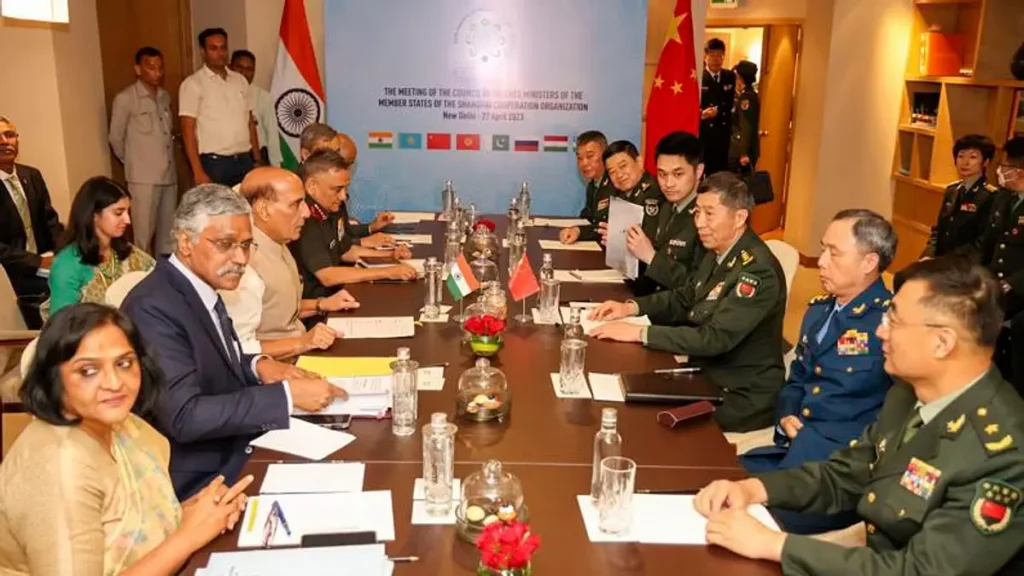General Li Shangfu, China’s defence minister, told his Indian counterpart Rajnath Singh, when they met on Thursday, that the two countries should view bilateral relations and the development of the other from a comprehensive, long-term, and strategic perspective, and jointly contribute wisdom and strength to world and regional peace and stability.
In response to India’s assertion that China’s violation of the border pacts has “eroded” the entire foundation of bilateral ties, China’s defence ministry stated on Friday that the situation at the border is generally stable and that both sides should put the boundary issue in its proper place and promote its transition to normalised management.

China’s Defence Minister General Li Shangfu, who is in New Delhi to attend the Shanghai Cooperation Organisation (SCO) Defence Ministers conference, met with his Indian counterpart Rajnath Singh for 45 minutes on Thursday to discuss the standoff in eastern Ladakh since May 2020.
During the meeting, Singh told Gen. Li that China’s violation of border agreements “eroded” the entire foundation of relations between the two nations and that all border-related issues must be resolved in accordance with the existing agreements.
During the meeting, the Chinese Defence Ministry said in a statement released on Friday, the two parties exchanged views on militaries and bilateral relations.
General Li stated that the situation along the China-India border is generally stable at present, and that both parties have maintained communication through military and diplomatic channels.
He stated that the two parties should adopt a long-term perspective, place the border issue in its proper place in bilateral relations, and facilitate the transition to normalised border management.
Li told Singh that he anticipated the two militaries would collaborate to enhance mutual trust and contribute to the growth of bilateral ties.
As key neighbouring countries and significant developing nations, he stated that China and India have far more common interests than differences.
The two sides should view bilateral relations and the development of the other from a comprehensive, long-term, and strategic perspective, and contribute wisdom and fortitude to global and regional peace and stability, he said.
According to Indian government sources in New Delhi, Singh conveyed to Li that there should be a movement towards de-escalation following the disengagement at the remaining sites of friction in eastern Ladakh, and he hoped for a “positive response.”
In a statement, India’s defence ministry said the two ministers had “frank discussions” about developments along the India-China border and bilateral relations.
Singh “reiterated that violation of existing agreements has eroded the entire foundation of bilateral relations and that disengagement at the border will logically be followed by de-escalation,” according to the report.
Li arrived in Delhi on Friday to attend a meeting of the SCO’s defence ministers, and the discussions took place shortly after his arrival.
The meeting between the two defence ministers occurred days after the Indian and Chinese armies conducted the eighteenth round of military talks aimed at settling the border dispute. During the Corps Commander discussions on April 23, both parties agreed to keep in close contact and quickly reach a mutually agreeable resolution to the remaining issues in eastern Ladakh. To end the three-year impasse, however, there were no obvious indications of progress.
After the ferocious clash in the Galwan Valley in June 2020, which marked the most severe military conflict between the two sides in decades, the relationship between the two nations deteriorated significantly. As a result of a series of military and diplomatic discussions, the two parties have completed the process of disengagement on the northern and southern banks of Pangong Lake and in the Gogra region.